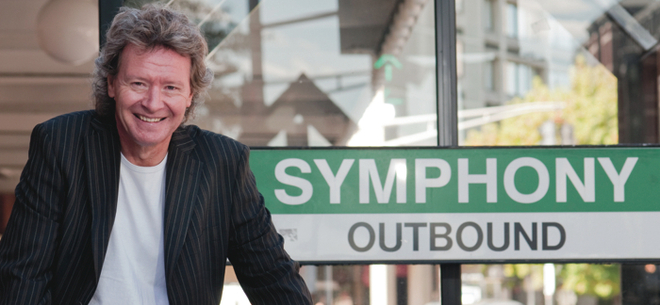Boston Accent: H&H's Harry Christophers
Messiah Complex

Stu Rosner
“It’s a great, great work and I never, ever get bored of it,” he says. “Strange though it may seem, there’s always something new to find in it. The great thing about Messiah is it’s one of the great masterpieces of classical music.”
Handel & Haydn’s annual performance of the oratorio is particularly special because it was one of the first pieces they ever performed as a group in 1815. Since joining H&H in 2008, Christophers has made it his mission to keep the piece fresh. “The danger of Messiah is, because it’s done just before Christmas, it can come off as a bit rote, as the thing to do after Thanksgiving… I was hell-bent on the fact that we’re not just going to perform it, to go through the motions. We actually create a great experience, we take [the audience] on this amazing journey. There’s very much a feeling that we’re taking note of all the scholarship that’s happened over the years. The soloists are inspired by the text and convey the text in a really great way.”
That passion for the music informs everything every decision at H&H, down to the period instruments the musicians use; Christophers says they help give a true reflection of the music as it was meant to be played.
Today, H&H is considered the oldest continuously performing arts organization in the country, and it’s gearing up for its bicentennial. The organization plans to revisit pieces that were originally premiered by the society and also emphasize education. “There’s a little bit of H&H reinventing itself,” Christophers says, mentioning the society’s charismatic concertmaster Aisslinn Nosky. “I think with her and myself, what we’ve managed to do is bring out a lot of musicians in Boston that were a little bit dormant. We’re finding some amazing talent within the realms of Boston.”
Christophers says H&H’s greatest goal as they approach the 200-year milestone is to spread awareness of the organization in Boston and beyond. “The music we perform has survived centuries,” he says. “In the same way I think John Lennon’s songs will survive centuries. If you’re making it approachable and giving off they feeling that you’re a human being rather than a maestro up on stage … there’s a total involvement and enjoyment of what we’re doing. The music that we do really brings out the emotions in people.”


 Handel's Messiah
Handel's Messiah